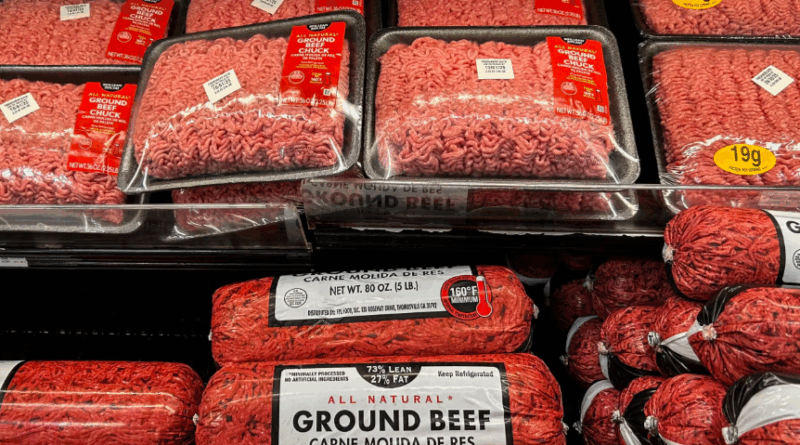Justice Dept Probes Meatpackers Over ‘Illicit Collusion, Price Fixing’ Driving Up Prices
The Department of Justice has launched a formal investigation into the country’s largest meatpacking companies over allegations of illegal collusion, price fixing, and market manipulation—following a directive from President Donald Trump, who accused the industry of fueling sky-high beef prices.
“I have asked the DOJ to immediately begin an investigation into the Meat Packing Companies who are driving up the price of Beef through Illicit Collusion, Price Fixing, and Price Manipulation,” Trump wrote in a Truth Social post on Friday.
The move comes as food prices, especially beef, continue to climb faster than inflation—due in part to lingering supply chain pressures and a cattle herd now at its smallest level in nearly 75 years. Despite that, consumer demand for beef has remained strong, and ranchers say the profits haven’t trickled down.
At the center of the investigation are four major processors—Tyson Foods, Cargill, JBS USA, and National Beef Packing—who together control around 80% of the U.S. market for grain-fed cattle. Critics have long warned that this level of industry concentration is ripe for abuse.
“This entire industry is highly concentrated and well beyond the level that’s normally considered a harm to the economy,” said Bill Bullard, CEO of the cattle producers’ group R-CALF USA.
JBS USA, a subsidiary of Brazil-based JBS, and National Beef, majority-owned by Brazil’s Marfrig Global Foods, are among the firms under scrutiny. Cargill declined to comment. The other companies have yet to issue statements.
The DOJ’s probe comes as part of a broader Trump administration effort to tackle what it calls “pocketbook issues” facing American families. Attorney General Pam Bondi confirmed the investigation was underway, saying Agriculture Secretary Brooke Rollins and Assistant Attorney General Gail Slater are coordinating efforts.
Slater, who previously served as a senior economic adviser to Vice President JD Vance, has prioritized competition in sectors that directly affect household budgets—including housing, transportation, and food.
The DOJ’s antitrust division has the power to pursue both civil and criminal charges. It can issue subpoenas, gather internal documents, and compel testimony as it investigates potential anti-competitive practices.
The Biden administration previously pointed fingers at meatpacking giants for price increases, and several of the same companies have already settled lawsuits worth tens of millions for allegedly manipulating beef prices by throttling supply. They have denied any wrongdoing.
In Congress, lawmakers across party lines have demanded tougher enforcement. At a June hearing, Senators Josh Hawley (R-MO) and Cory Booker (D-NJ) both urged a crackdown on what they described as corporate exploitation.
“We need transparency, accountability, and a fair market that rewards those who actually raise and produce our beef—not the corporate middlemen gaming the system,” Rollins posted on X.
Trump has also drawn heat from some ranchers in recent weeks. In an effort to bring down prices, he urged producers to lower the cost of cattle and floated the idea of ramping up Argentine beef imports, a suggestion that sparked backlash from the domestic industry.
But economists say boosting low-tariff Argentine beef imports wouldn’t have a significant effect on grocery prices. Meanwhile, Trump’s 50% tariff on Brazilian beef—imposed in August—has already curtailed one of the key sources of ground beef used in U.S. hamburger blends.
As the DOJ digs in, the outcome of the investigation could mark a major turning point for America’s meat industry—and a defining moment in the Trump administration’s effort to police corporate consolidation.

